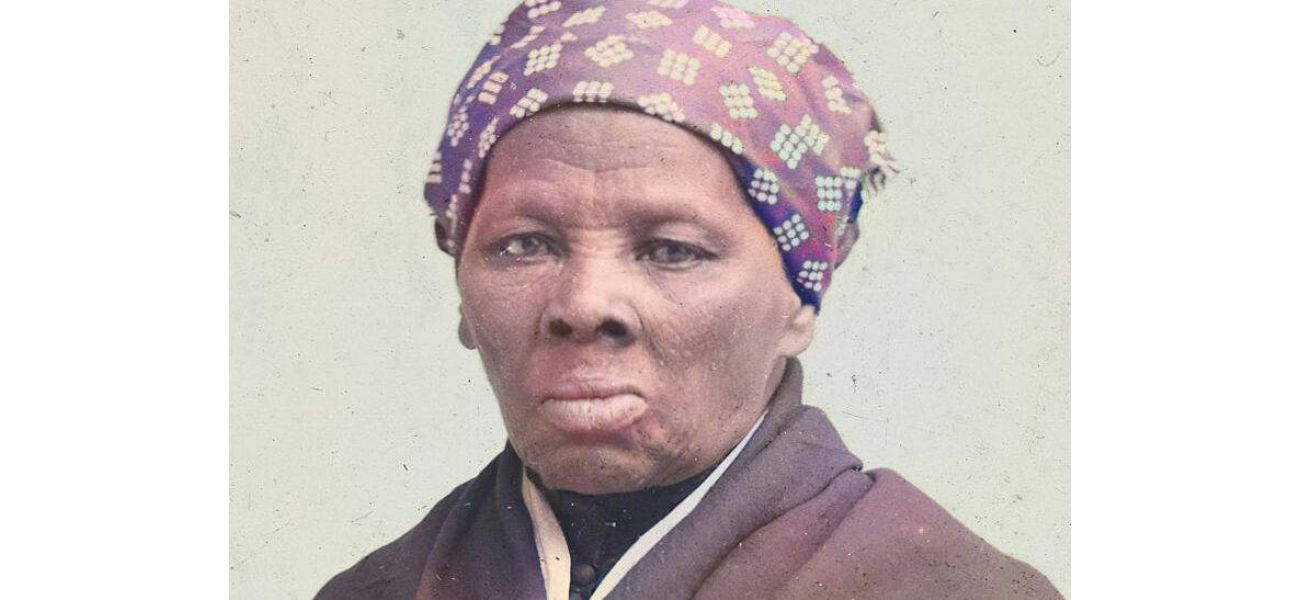Tubman's relative slams Park Service for diluting Underground Railroad terminology.
Harriet Tubman's descendant is speaking up about the National Park Service's website not highlighting the significance of the Underground Railroad.
April 11th 2025.

Harriet Tubman's great-great-great-grandniece, Rita Daniels, was deeply affected by the National Park Service's recent decision to change the language on its website about the Underground Railroad. When she first saw the news on her phone, she was torn apart. In an interview with NBC News, she expressed her devastation and disappointment.
One of the changes made to the webpage was replacing an image of Tubman with one featuring five postage stamps depicting "Black/white cooperation." The description of the Underground Railroad was also altered, shifting the focus from "resistance to enslavement" to downplaying slavery and framing it as part of the "American civil rights movement." These changes were made following an executive order from President Donald Trump, which directed the Smithsonian Institution to eliminate "divisive narratives." This order has resulted in dozens of pages on National Park Service websites being edited to downplay some of the country's darkest moments in history.
For Daniels, these changes hit close to home as she has a personal connection to Tubman. Growing up in Auburn, New York, where Tubman settled after escaping slavery, Daniels discovered that she was related to the civil rights icon. She remembers being taught in school that Tubman was a thief, but when she shared this with her mother, she learned the truth about her ancestor and their lineage. From that moment on, Daniels has been dedicated to preserving Tubman's story and legacy.
She co-authored a book about Tubman's life and founded the Harriet Tubman Learning Center to educate others about her true history and impact. Seeing the National Park Service downplay her aunt's legacy is heartbreaking for Daniels. She says that Tubman's story is a critical part of Black history, which is American history, and she has spent most of her life making sure that people know and understand this.
Daniels is not alone in her disappointment and frustration with the changes to government websites. Many see it as part of the Trump administration's larger effort to remove references to diversity, equity, and inclusion. Daniels questions why they would want to erase Black history and sees it as a form of racism. When news of the changes spread, the National Park Service issued a statement clarifying that the page had been removed without approval and the original version was immediately restored.
For Daniels, Tubman's legacy is too important to be pushed aside and erased. She believes that the impact her aunt had on many people, not just herself, cannot be ignored or minimized. She sees Tubman as a reputable and influential figure in American history, and she will continue to fight for her legacy to be properly honored and remembered.
One of the changes made to the webpage was replacing an image of Tubman with one featuring five postage stamps depicting "Black/white cooperation." The description of the Underground Railroad was also altered, shifting the focus from "resistance to enslavement" to downplaying slavery and framing it as part of the "American civil rights movement." These changes were made following an executive order from President Donald Trump, which directed the Smithsonian Institution to eliminate "divisive narratives." This order has resulted in dozens of pages on National Park Service websites being edited to downplay some of the country's darkest moments in history.
For Daniels, these changes hit close to home as she has a personal connection to Tubman. Growing up in Auburn, New York, where Tubman settled after escaping slavery, Daniels discovered that she was related to the civil rights icon. She remembers being taught in school that Tubman was a thief, but when she shared this with her mother, she learned the truth about her ancestor and their lineage. From that moment on, Daniels has been dedicated to preserving Tubman's story and legacy.
She co-authored a book about Tubman's life and founded the Harriet Tubman Learning Center to educate others about her true history and impact. Seeing the National Park Service downplay her aunt's legacy is heartbreaking for Daniels. She says that Tubman's story is a critical part of Black history, which is American history, and she has spent most of her life making sure that people know and understand this.
Daniels is not alone in her disappointment and frustration with the changes to government websites. Many see it as part of the Trump administration's larger effort to remove references to diversity, equity, and inclusion. Daniels questions why they would want to erase Black history and sees it as a form of racism. When news of the changes spread, the National Park Service issued a statement clarifying that the page had been removed without approval and the original version was immediately restored.
For Daniels, Tubman's legacy is too important to be pushed aside and erased. She believes that the impact her aunt had on many people, not just herself, cannot be ignored or minimized. She sees Tubman as a reputable and influential figure in American history, and she will continue to fight for her legacy to be properly honored and remembered.
[This article has been trending online recently and has been generated with AI. Your feed is customized.]
[Generative AI is experimental.]
0
0
Submit Comment





